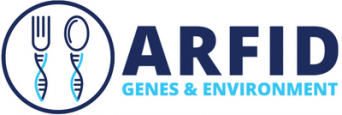How we plan to investigate the genetic and environmental causes of eating disorders
Nature AND nurture
If someone asks us if eating disorders are caused by nature or nurture, we respond “Both!” EDGI is designed to identify both genetic and environmental causes of eating disorders. We analyze the DNA of people with eating disorders and compare it to the DNA of people without eating disorders, but we also ask many questions about your life experiences. Studying these together will allow us to understand why some people are more likely to develop eating disorders than others. Our final goal is to develop more effective, personalized prevention and treatment efforts that target underlying biology, and also consider the role that environment plays in risk and in recovery.
In EDGI, we ask you to donate saliva sample. DNA can be extracted from saliva to get a read out of your genetic code.
The analysis process, known as a “genome-wide association study” (GWAS), involves comparing the genotypes of many people with lived experience of an eating disorder, to the genotypes of those who have not experienced an eating disorder.
Looking for patterns
By combining genetic information with information about your life experiences, we will be able to identify what it is about some peoples genetic make-up that might make them more vulnerable to environmental risk factors. For example, many of us have been teased at some point in our life about some aspect of who we are or what we look like. For some people, teasing and bullying doesn’t really get to them. Other people are more sensitive and find that unkind words stick to them like Velcro and might even lead them to go on a diet or engage in other eating disorder behaviors. Likewise, two people with very different eating disorders might respond to treatment differently. One might recover rather quickly, while the other develops a prolonged illness course. We want to find out why and how best to personalize our treatments to individuals.
Comparing the EDGI samples with samples from individuals with other disorders will also help the researchers to understand the genetic relationship among eating disorders and commonly co-occurring conditions, such as depression, anxiety disorders, substance use problems, as well as other medical illnesses including metabolic conditions.

